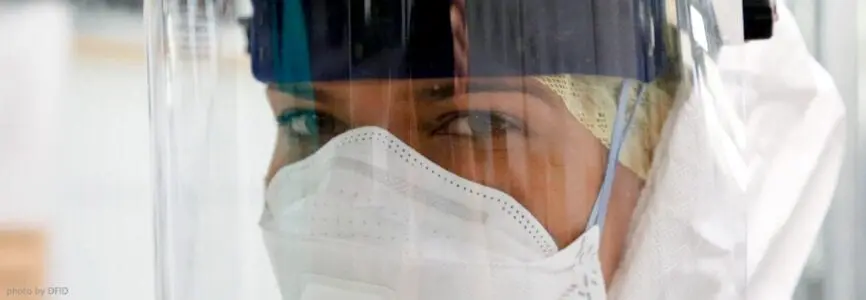Bioethics Forum Essay
Responding to Ebola: Fostering Transparency and Inclusivity
Media reports indicate that seven individuals have received ZMapp to date, two of whom have died. The first recipients were two American health care workers from Liberia who were treated and airlifted to Atlanta last month. This is commendable – an outstanding example of the duty of rescue owed by the United States to two of its citizens engaged in voluntary work abroad. Likewise, also last month, a British nurse was airlifted from Sierra Leone to the United Kingdom. With respect to the American volunteers, we are told that the experimental intervention was used unconventionally under emergency conditions on compassionate grounds and with informed consent. The risk benefit ratio was clearly offset by the significant risk of death faced by both individuals. Arguably, the use of the experimental intervention in this scenario was justified.
Although the use of ZMapp in the current circumstances in West Africa may be ethically justifiable, it has challenged conventional wisdom and generated debate. Several questions have been raised about transparency, procedural justice, and engagement with local governments, regional bioethicists, and health care workers. Questions remain around whether the U.S. Food and Drug Administration approved the expanded compassionate use and why the drug was initially offered to American health workers only. Given the unconventional experimentation with ZMapp, widespread use would have been ethically questionable. However, careful and targeted therapeutic use in Liberia could not have generated charges of exploitation as occurred in the Trovan case in Kano, Nigeria. The two situations are hardly comparable. Adequate evidence has pointed to the questionable manner in which Pfizer conducted the Trovan trial, the lack of consent, and the suboptimal dosages of ceftriaxone used in the control group.
The Ebola outbreak has highlighted an age-old dilemma: a neglected disease discovered 38 years ago with subsequent neglected drug development – a scenario not unfamiliar on the African continent. At most we may assume that there were at least six to twelve doses of ZMapp available. How ought we to have distributed this scarce resource? We know that the first recipients were an American doctor, an American missionary, and a Spanish priest. In reaching the decision to allocate a scarce resource, was a fair deliberative process followed? We know that such processes must have legitimacy – transparency, rationality, and relevance of reasons for choosing some above others. Were the principles of utility, equality, and fairness balanced to engender trust in West African communities? Peter Piot, co-founder of the Ebola virus in 1976, as well as Jeremy Farrar, director of Wellcome Trust, called for African governments to be allowed to “make informed decisions.” Why were African health care workers only treated with ZMapp in mid-August and only after “appeals to the U.S”? Surely the duty to care and the rule of rescue extends to resource poor countries in the context of a humanitarian crisis? Compassionate use ought to extend to all healthcare workers with capacity to consent within the constraints of limited resources.
It remains unclear to many how decision-making occurred in terms of resource allocation during the current Ebola outbreak. While one may understand the prioritization of the American health workers, the selection of the Spanish priest above Liberian health care workers remains a mystery. This does not augur well for international collaborative research relationships in Africa where power asymmetry and distrust continue to cloud the horizon.
Keymanthri Moodley is director of the Centre for Medical Ethics and Law at Stellenbosch University in Cape Town, South Africa, where she is also an associate professor in the department of medicine.
Posted by Susan Gilbert at 09/03/2014 09:57:35 AM |













